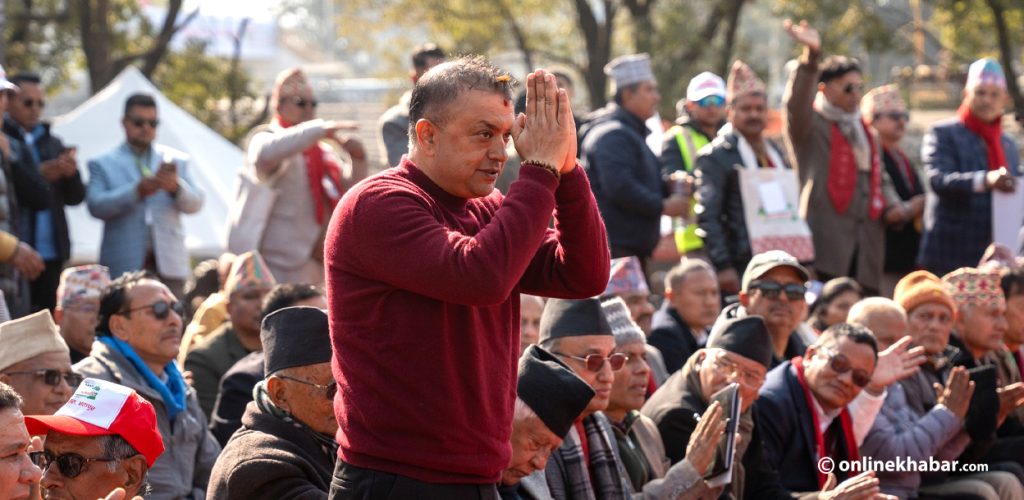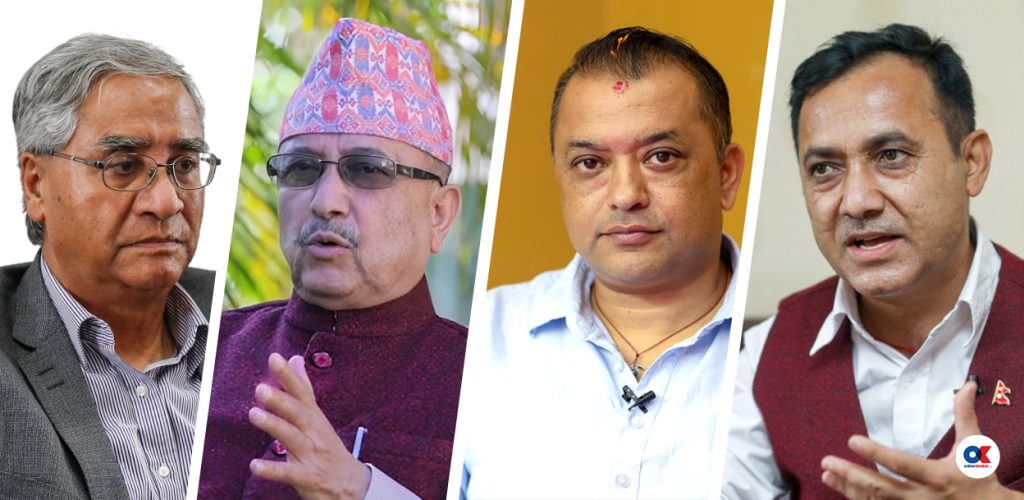
Kathmandu, March 5
Prime Minister KP Sharma Oli had gone to the Apollo Hospital in New Delhi of India for his first kidney transplantation in 2007. However, he chose Kathmandu-based Tribhuvan University Teaching Hospital for his second kidney transplantation this time. For the Nepalis who are habituated to the news about frequent overseas trips of political figures, citing medical reasons, this choice was a surprise.
Dr Prem Raj Gyawali and Dr Arun Sayami, who were involved in the transplant process, have revealed that it was entirely Oli’s choice and he would have flown abroad this time also if he had wished so.
So why did Oli choose a domestic hospital for the major surgery, and why the teaching hospital? Here we explain:
1.
Intimacy with the medical team
 Dr Sayami is in constant contact with Oli since the early 1990s. Since then, he is frequently consulted by the prime minister. Oli’s personal physician, Dr Didya Singh Shah, is also a staff doctor at the TUTH. Oli had first met Dr Singh at the TUTH in the early 2010s during treatment. Dr Sayami reveals that Dr Singh had been advising Oli to have the kidney transplanted at the TUTH.
Dr Sayami is in constant contact with Oli since the early 1990s. Since then, he is frequently consulted by the prime minister. Oli’s personal physician, Dr Didya Singh Shah, is also a staff doctor at the TUTH. Oli had first met Dr Singh at the TUTH in the early 2010s during treatment. Dr Sayami reveals that Dr Singh had been advising Oli to have the kidney transplanted at the TUTH.
In November last year, the prime minister was admitted to the TUTH for the treatment of apendicitis. Though the doctors said the case was critical then also, they successfully healed him. Since then, Oli has been confident about the competence of Nepali hospitals and medical experts.
2.
Success rate

Dr Gyawali informs that the success rate of kidney transplantation at the TUTH has been recorded at 98.7 per cent, which is highly successful in comparison to the international standard. The hospital has performed 10 second-time transplantations, of which eight are successful. It seems the prime minister is aware of these facts.
3.
Other facilities

The hospital also boasts many other facilities such as a blood bank, different kinds of labs and other specialised doctors. The hospital is equipped with most of the gadgets needed for the treatment of heart, lungs and blood vessels.
“During kidney transplantation, other infections might take place. This hospital has been chosen because handling any potential complication will be easier here,” Dr Sayami says, “For critical transplant cases, there is not an alternative to this hospital.”
4.
Political message
 The final factor that influenced Oli’s decision is political. Dr Sayami says Oli was concerned about the quality of services the government-run health facilities would provide. Oli always wishes that the people should not hate government facilities, according to him.
The final factor that influenced Oli’s decision is political. Dr Sayami says Oli was concerned about the quality of services the government-run health facilities would provide. Oli always wishes that the people should not hate government facilities, according to him.
It means with his transplantation performed at the teaching hospital, Oli wants to give a message that Nepali hospitals are also capable of handling critical cases. Apparently, it will also give him some political benefits.























